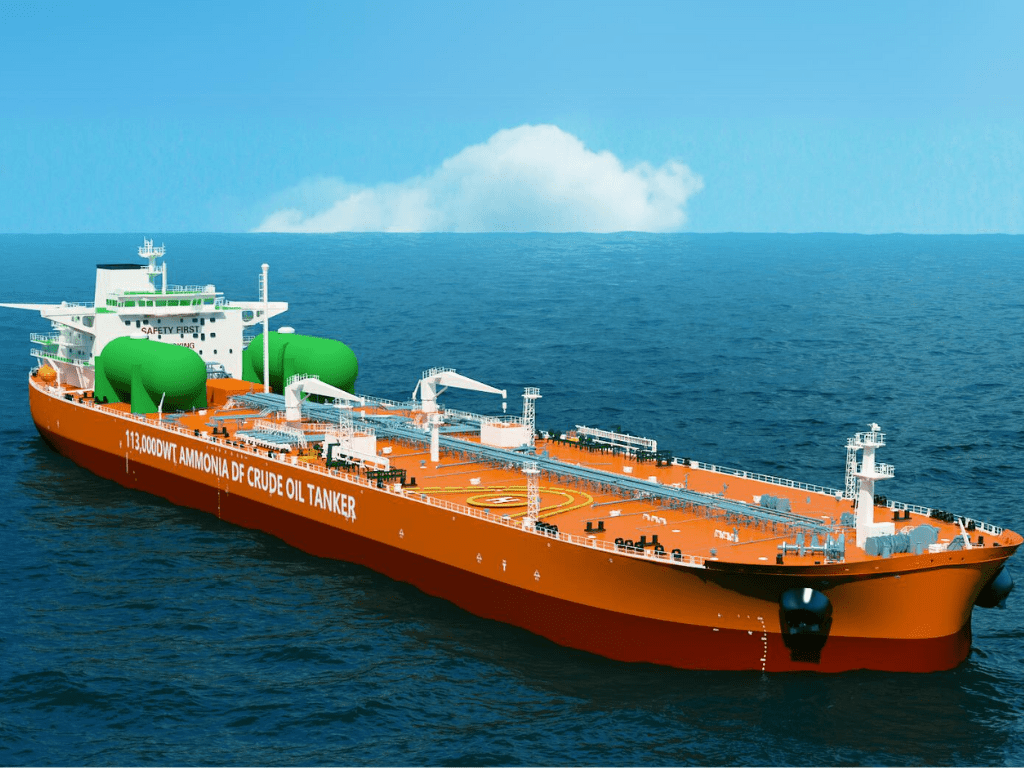Delivering More Energy with Less Emissions
We remain committed to decarbonising our operations and have set medium-term and long-term climate targets in line with the International Maritime Organization (IMO) Greenhouse Gas (GHG) emissions goals (2023 IMO Strategy on Reduction of GHG Emissions from Ships) and the broader objectives of the Paris Agreement.
In 2023 we launched our new Energy Transition Strategy, designed to propel us towards a future where we deliver more energy with less emissions. In the strategy, we introduced our aspiration of an absolute 40% reduction in our fleet’s GHG emissions from the 2008 baseline underpinned by our decarbonisation pathways.

Advancing Maritime Decarbonisation Towards Zero Emissions
On 19 April 2024, we entered into Time Charter Party contracts with PETCO Trading Labuan Company Ltd (PTLCL) and signed the Shipbuilding Contracts with Dalian Shipbuilding Industry Co., Ltd for two of the world’s first ammonia dual-fuel Aframaxes - taking concrete actions towards our commitment to delivering more energy with less emissions.
The signing with PTLCL marked the realisation of the Memorandum of Understanding that was signed in February 2023 to develop a dual-fuel Aframax powered by ammonia. We had also inked a Collaboration Agreement with Akademi Laut Malaysia and Winterthur Gas & Diesel in 2023 aimed at driving the development of engines for ammonia dual-fuel vessels.
This strategic collaboration will also involve the development and training of mariners to safely manage vessels built with ammonia engines and other new technologies.
Our approach to achieving net-zero GHG emissions by 2050 involves a multifaceted strategy and we have established our decarbonisation pathways to help us achieve that goal.

